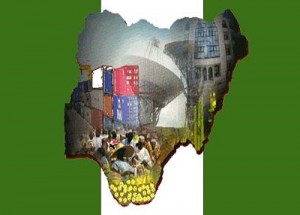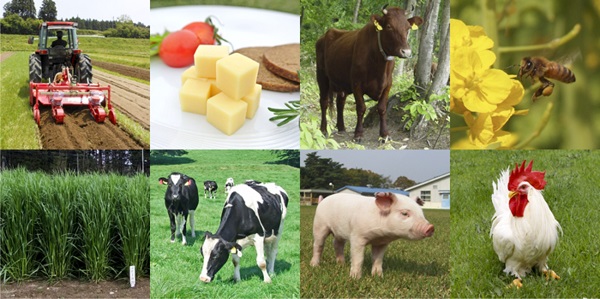How To Diversify Nigeria’s Economy Without Conflict- UNDP
In this week’s edition of Shippers Guide, the Head of the United Nations System and UNDP Resident Representative, Fatma Samoura takes a look at Nigeria’s need of strong institutions, a diversified economy and collective efforts to prevent conflicts and promote peace.
this week’s edition of Shippers Guide, the Head of the United Nations System and UNDP Resident Representative, Fatma Samoura takes a look at Nigeria’s need of strong institutions, a diversified economy and collective efforts to prevent conflicts and promote peace.
“Nigeria has experienced growth in the recent past and now is Africa’s largest economy. However, this growth has not translated in poverty reduction and reduced inequalities.” Fatma said
During the meeting attended by media representatives drawn from across the country, Ms. Samoura emphasised that for the gains made to be sustained, the country needed to urgently look at ways of expanding its sources of growth. She stated as Africa’s largest economy, Nigeria needed to address inequalities that continue to exist noting that growth that is not inclusive is not sustainable.
“At UNDP, we believe that expanding the sources of growth and ensuring that this growth is pro-poor remain key elements necessary for reducing the levels of poverty in Nigeria.” Ms. Samoura said.
UNDP is already providing strategic support to the Government of Nigeria in two key areas that will help expand this growth; – through support to interventions aimed at transforming the country’s agricultural sector; and strengthening the country’s solid minerals sector.
“UNDP is working with both the Federal and State governments because we believe that these two sectors have great potential to drive growth further” she stated.
In collaboration with the Federal Ministry of Agriculture and Rural Development and the Africa Facility for Inclusive Markets of the UNDP Regional Centre, UNDP will be launching a project on ‘Agricultural Supplier Development Programme (ASDP). This new project will create employment opportunities, and increase income and output for rural farmers. It will also strengthen the commodity supply chains by narrowing the gaps between farmers and retailers.
Ms. Samoura also stated that a cooperation framework for strengthening the solid minerals sector between the Ministry of Solid Minerals and UNDP Nigeria is being developed. “This framework is aimed at exploring avenues for increasing the production of minerals to generate revenue for the country as well as create employment opportunities for the million unemployed Nigerians.” She said.
Ms. Samoura pointed out that UNDP will continue to support the government in strengthening the country’s democratic governance and help build on the successes scored in the past, including the successful 2015 elections. Focus will be placed on further strengthening of the electoral process, provision of policy support, and enhancement of transparency in the public sector.
“For the country to succeed in preventing corruption from taking place, the present political will needs to be supported by strong institutions.” She emphasized. UNDP will therefore continue providing the support to the Government to ensure it succeeds in its fight against corruption.
“We will continue working closely with the media, civil society organisations and strengthen our partnership with the Presidential Advisory Committee on Corruption, the National Assembly and other Anti-Corruption Agencies in order to achieve a culture of integrity in the country… The role of the media in shaping public opinion and advocating for transparent and accountable leadership cannot be overemphasized.” Ms. Samoura stated.
With regard to responding to the humanitarian situation in the North East of the country, Ms. Samoura stated that the challenges faced by people in the region were enormous and required urgent attention. UNDP support towards the situation in the region has been channelled through provision of training opportunities that empower victims of the insurgency with vocational skills.
Beyond livelihood-related interventions, Ms. Samoura mentioned that UNDP had already commenced the implementation of a project that focuses and address issues related to de-radicalization, counter-terrorism and migration. She further mentioned that UNDP was a co-lead institution in the Early Recovery and Livelihoods Sector Working Group (ER&L SWG) in Nigeria. The working group had already identified four key areas of integrated programming in Nigeria which include; Mine Action; Debris & Waste Management; Emergency Livelihoods; and Recovery Shelter.
She stated that Early Recovery interventions will addresses recovery needs that have arisen during the humanitarian phase of situation in the North East – using humanitarian mechanisms that align with development principles. These interventions will enable people to use the benefits of humanitarian action to seize development opportunities, build resilience, and establish a sustainable process of recovery from crisis. “I will be going to the North East of Nigeria to see for myself the extent of the crisis in the region.” She stated as she responded to a question on whether she had been to the region to fully appreciate the challenges faced by the people.
In ensuring that future conflicts are prevented, Ms. Samoura stated that there were already UN efforts directed at supporting and promoting peace-building, conflict prevention and social cohesion – all part of the framework of a National Infrastructure for Peace in Nigeria. She added that the UN was using this framework to harness efforts at Federal, State, and Local Government Areas, bringing together the relevant stakeholders in addressing issues that prevent future conflicts to erupt.
“We will keep providing support towards enhancing our early warning and response mechanisms and programmes, and expand channels for dialogue aimed at peaceful co-existenc”, she concluded.






